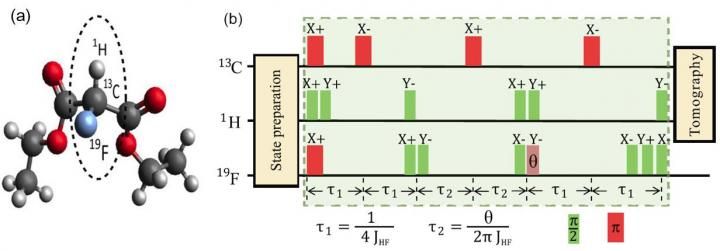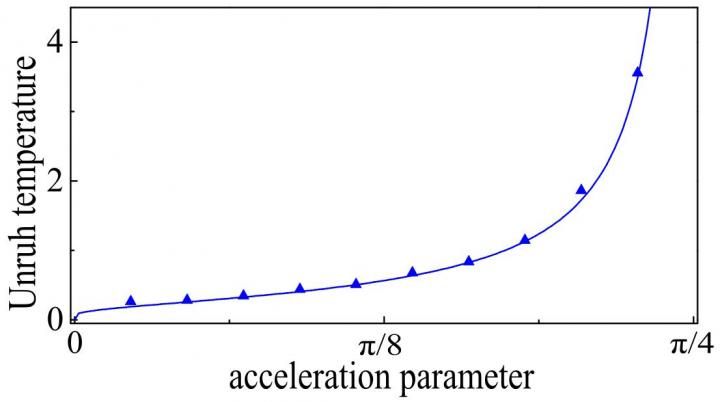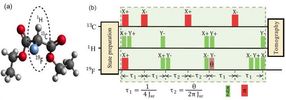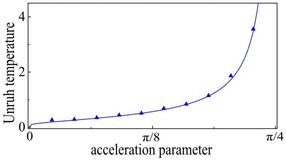Scientists realize quantum simulation of the Unruh effect
Quantum mechanics and relativity theory are two pillars of modern physics. With their amalgamation, many novel phenomena have been identified. For example, the Unruh effect is one of the most significant outcomes of the quantum field theory. This effect serves as an important tool to investigate phenomena such as thermal emission of particles from black holes and cosmological horizons. It has been 40 years since the discovery of the Unruh effect, however, this effect is too weak to be observed with current technique. There have been a lot of attempts in searching for the observational evidence of the Unruh effect and in general the experimental observation is still of great challenge. To address this issue, quantum simulators may provide a promising approach. quantum simulation is widely applied for simulating the quantum systems which cannot be efficiently simulated by classical computers or are not directly tractable by the current techniques in the laboratory.

(a) The NMR quantum simulator consists of 13C, 1H and 19F nuclear spins in chloroform; (b) The experimental pulse sequence for simulating the Unruh effect.
Science China Press

Experimental results (blue triangles) of simulating the Unruh temperature with the acceleration parameter. The blue line is the theoretical prediction.
Science China Press


The researchers, led by Prof. Jiangfeng Du from University of Science and Technology of China, reported an experimental simulation of the Unruh effect with an NMR quantum simulator. The experiments were performed on a Bruker Avance III 400MHz spectrometer. The researchers used a sample of 13C, 1H and 19F nuclear spins in chloroform as the NMR quantum simulator, as shown in Figure 1(a). The simulated Unruh effect on the quantum states can be realized by the pulse sequence acting on the sample, as depicted in Figure 1(b). By the quantum simulator, they experimentally demonstrated the behavior of Unruh temperature with acceleration, which agrees nicely with the theoretical prediction, as shown in Figure 2. Furthermore, they investigated the quantum correlations quantified by quantum discord between two fermionic modes as seen by two relatively accelerated observers. It is shown for the first time that the quantum correlations can be created by the Unruh effect from the classically correlated states.
It is interesting that the Unruh effect was in Feynman's blackboard as one of the issues to learn at the time of his death in 1988, while it was also Feynman who conceived the idea of quantum simulation in 1982. This quantum simulation of the Unruh effect will provide a promising window to explore the quantum physics of accelerated systems, which widely appear in black hole physics, cosmology and particle physics.










































